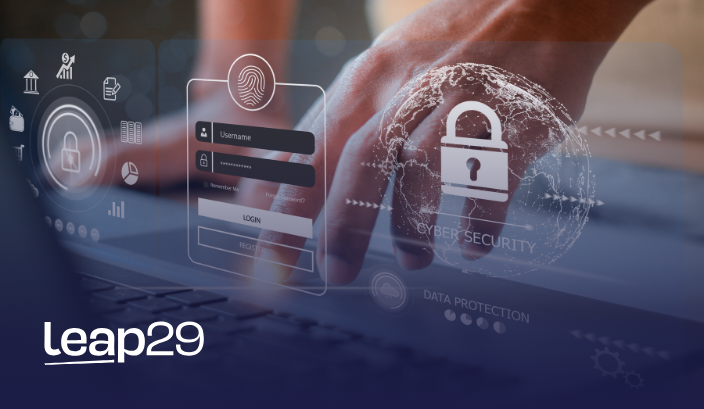Get ready for these upcoming cybersecurity job postings!
The current state of cybersecurity jobs is characterized by high demand and diverse roles and responsibilities. Between 2013 and 2021, there were 3.5 million cybersecurity job openings, an increase of 350 percent. Despite the pandemic-related redundancies in the tech industry, the demand for cybersecurity experts is still high, and the shortage of professionals means that every IT worker must also shoulder a security burden.
As artificial intelligence (AI) and machine learning (ML) continue to gain momentum in the cybersecurity industry, there are growing concerns about the future of cybersecurity jobs. Everyone from software engineers, content writers and Cybersecurity professionals are trying to find a way to navigate this new and exciting field. Given how fast the technology is evolving and taking over tasks humans used to do, it is natural to be worried about the future. So the million dollar question remains – Will AI replace Cybersecurity jobs? The answer, personally is YES and NO. While AI has several advantages in cybersecurity, it cannot replace human cybersecurity professionals entirely. Cybersecurity requires more than just detecting threats and responding to incidents; it also requires critical thinking, creativity, and ethical decision-making. While AI can automate many tasks, it cannot replace the intuition and context-based decision-making of human professionals. There are many jobs requiring minimum skills that will get replaced, however AI is going to create as many jobs as it displaces.
New Job Roles in Cybersecurity
In this blog, I want to go over a few new job roles that I predict (based on the research and talks on the ground I have come across as a recruiter specialising in these domains), are going to become more and more common as AI adoption increases in the coming months and years. NOTE: I am not highlighting about roles that will get enhanced and more productive like incident response or threat intel but entirely NEW roles that we can expect to start showing up sooner than later.
- AI penetration tester / threat hunter
Penetration testing and threat hunting have come a long way in the past few decades. It has now matured tremendously but AI based penetration testing is still quite niche in the market. These professionals will need to leverage custom tooling to proactively assess AI applications against attacks like membership inference, data poisoning, model poisoning etc. Expect this field to be red hot in the coming years as AI adoption goes through the roof! - AI Security Analysts
Similar to the cybersecurity analysts of today but instead of monitoring and assessing infra or applications; AI security analysts will be required to assess AI based applications and identify potential security weaknesses that can be exploited. This would require a thorough knowledge of how AI applications work, how machine learning algorithms are fine-tuned and where weaknesses can come in. Attacks on AI based applications are a reality and AI security analysts will be the go-to person to mitigate them. - AI Governance and Ethics Specialist
AI is still pretty much an unregulated space but all that is expected to change in the coming years. Regulations are coming in to make sure that these technologies do not carry over human biases and prejudices in their decision making. AI Governance and ethics specialists will need to make sure appropriate guidelines and standards are present for the usage of AI. Expect the upcoming AI act to have the same impact as GDPR did for privacy. - AI Risk Management Officer
AI security does not exist in a vacuum and needs to be part of an overall framework. An AI risk officer will be responsible for ensuring that there is a proper risk management framework in place for the identification, mitigation, and oversight of such risks. I expect this to fall under the Operational Risk wing of Risk Management departments in the future. - AI Security Auditor
As AI driven applications become more and more common, the Management will want independent confirmation that these applications are being built as per best practices. This is where AI security auditors will come into play. We already have an ISO guideline on the way that “aims to provide information to organizations to help them better understand the consequences of security threats to AI systems, throughout their lifecycle, and descriptions of how to detect and mitigate such threats”. - Head of AI security
Lastly, we have the Head of AI security position which I expect will become as common as we see “Head of Application Security” or “Head of DevSecOps” nowadays. CISOs will want someone to have strategic oversight of AI based risks and this is where this position will come in. The Head of AI security will own the AI security roadmap and lead a team of AI security professionals to make sure no data breach happens in the AI space. Collaboration between AI and human professionals is crucial to create a more effective and efficient cybersecurity landscape.
In Conclusion
In conclusion, AI will improve threat detection and response in cybersecurity, but it cannot replace human cybersecurity professionals entirely. A combination of AI and human expertise will be necessary to ensure a secure and resilient digital world. Human professionals bring critical thinking, creativity, and intuition to the table, and they can understand the context of a situation, evaluate the effectiveness of cybersecurity measures, and make decisions based on ethical and legal considerations.
There you have it. This is indeed an exciting time to be involved in the AI security space and I am looking forward to seeing these new roles and how they take shape in the coming months or years! Want to share your thoughts on this article, write to me on [email protected] and let’s grab a coffee!





